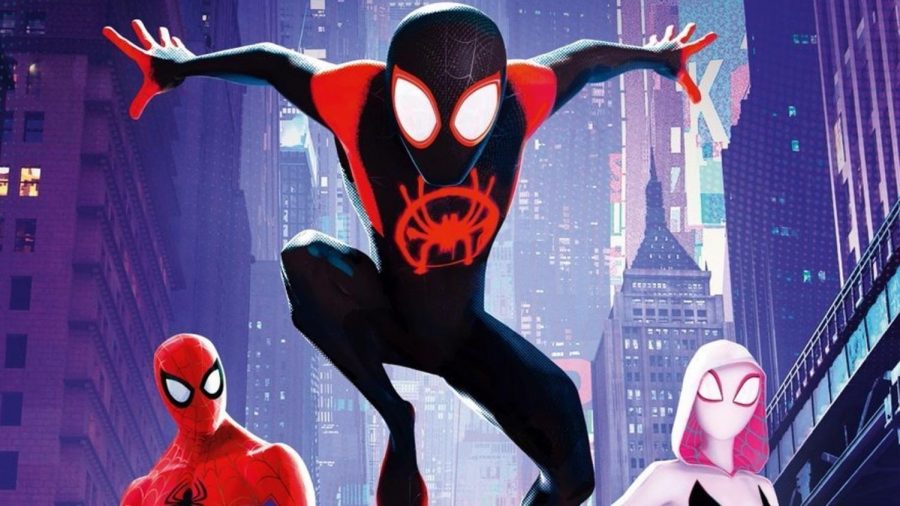Review: ‘Spider-verse’ spins a thoughtful, entertaining twist on the class superhero
January 31, 2019
Recently, the pop culture debate circulating has been over whether Tobey Maguire, Andrew Garfield, or Tom Holland played the best “Spider-Man” in the hit Marvel movies. Now, however, with the latest spin on the famous superhero story, Marvel fans can add Miles Morales, voiced by Shameik Moore, to the list of candidates.
Spider-Man: Into the Spider-Verse tells the revered comic story of a normal boy who is bitten by a radioactive spider, granting him superhuman, spider-like powers. Although in Miles’s case, he is animated, and he’s not the only Spider-Man out there.
As super villain Kingpin, voiced by Liev Schriber, attempts to open parallel universes for his own personal gain, Miles discovers spider-people from alternate universes including Peter Parker (Jake Johnson), Spider-Gwen (Hailee Steinfeld), Spider-Man Noir (Nicholas Cage), Spider-Ham (John Mulaney), and Peni Parker (Kimiko Glenn). The five of them try to help the inexperienced Miles close the portal in order to save all the universes.
Directed by Peter Ramsey, Bob Persichetti, and Rodney Rothman, the film perfectly portrays Miles’s feelings toward his struggling relationship with his father, his difficulty with making friends at a new school, and his recent superhuman transformation.
Growing up is hard enough already, and it does not make it any easier that Miles’s father (Brian Tyree Henry) is a police officer with a particular distaste for superheroes, specifically Spider-Man. The father and son’s troubled relationship is conveyed coherently through brilliant voice acting, an emotional screenplay, and even the animation itself, as one scene explicitly shows Miles keeping his father out of his room.
The reunification of Miles and his father occurs not only because the plot provides an obvious point for it, but also because the well-executed development of the characters allows for each of them to realize their missteps and miscommunication in the relationship.
While Miles is certainly plagued by his inability to blend in at school and his new, uncontrollable powers, writers Phil Lord (The Lego Movie) and Rodney Rothman place his relationship with his father at the center of his emotions to effectively convey an issue that all kinds of audiences can relate to.
While the plot and writing are an obvious high point in the film, the animation is also mind-blowing, especially considering Marvel’s (with Sony Pictures, in this case) tendency to stick to live action superhero movies.
The idea of alternate universes gives the movie a perfect outlet for creative, out-of-the-box animation. Each of the new spider-people Miles encounters comes from a different universe, and in turn, a completely different world of animation. Ranging everywhere from old school, black and white to colorful, anime-like backdrops, Spider-Man: Into the Spider-Verse covers a wide array of styles to convey one of their main messages: it’s okay to be different.
To make the already flawless film even better, the soundtrack fits the tone better than any movie I have seen recently. Featuring artists like Nicki Minaj, Jaden Smith, and Post Malone, the music can appeal to almost every audience, especially teenagers, who are most likely the target viewers.
Spider-Man: Into the Spider-Verse, overall, perfectly encapsulates the emotional struggles of being a teenager while incorporating hilarious jokes, creative animation, and a perfect score. Nominated for Best Animated Feature for the upcoming Oscar awards, this film is a must-see for anyone and everyone.
